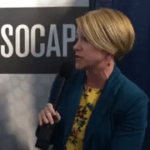Social Business Roundup: A $1 Smartphone, the Upshot of Disparity and the Quizzing of Presidents
Could advertisements subsidize a smartphone down to a price point so low that even those at the base of the pyramid could afford one? That’s the business model of SocialEco, a UK software company that’s working on bringing the “$1 Smartphone” to developing markets. The phone would come filled with apps that advertise to low-income consumers. SocialEco this week announced it will partner with satellite software firm Sky and Space Global (SAS) to look into integrating its $1 smartphone and SAS’ network coverage. More on $1 Smartphone’s value proposition is in the promotional video below. (We’re withholding judgment, but we wonder: How many ads is too many before a $1 smartphone is no longer worth it?)
Let’s concentrate on wealth concentration
How has the expanding gap between the world’s poorest and richest people played out, in practical terms? The rise of populism. And how will the populist wave impact global aid and development? That’s the focus of an interesting opinion piece in World Politics Review this week.
Sarah Hearn sets aside emotion in discussing global income insecurity amid growing distrust, and how the problem might be addressed before it’s too late. We were especially interested in her view on the role the private sector might play, given “that business creates 90 percent of jobs in developing countries.”
An Impact Investor Asks Trump …
As a 12-year-old girl in Dhaka, Bangladesh, Durreen Shahnaz wrote to President Ronald Reagan asking him to help countries like hers. She recalls her shock when he wrote back. Shahnaz, the founder of the Impact Investment Exchange (IIX), is writing to another president: Donald Trump. Her open letter implores Trump to get behind impact investing:
“Helping impact investing go mainstream will cost you far less than building a wall or fighting another war. … This is because impact investing will engage people around the world to invest in their communities, create jobs, bring economic growth and perhaps even create climate solutions.”
Quotable:
“A social enterprise is actually a failed business. Once it becomes profitable, it’s just a good enterprise.” – Eyal Halamish, the chief executive and co-founder of digital democracy platform OurSay, in a recent article in the Sydney Morning Herald titled “The Lives and Lies of Social Entrepreneurs.”
While Halamish says turning a profit is critical for the company, other entrepreneurs quoted in the article say they sometimes try to hide the fact that they’re profit-seeking.
An Unhappy Birthday for M-Pesa
Just when Safaricom was basking in international plaudits around M-Pesa’s 10th anniversary, it’s facing calls to spin off the highly profitable mobile money platform. A yet-to-be published report on market dominance contracted by the Communications Authority of Kenya reportedly recommends that the two businesses separate their offices, staff (below board level), branding, accounting and business operations – but stops short of calling for separate legal entities. Meanwhile, a prominent lawmaker wants to compel telecoms to separate their businesses along lines of service provision, whether that’s voice, data and internet, or mobile money – a move that would also split M-Pesa from its parent.
designing a successful global health get-together?
“Many global health convenings focus on policy. That is critically necessary … but we need more San Francisco and less Washington.”
That’s a quote from Gerhard Pries of Sarona Asset Management in the introduction to a new report, “Reimagining the Global Health Convening: What’s Next?” inspired by Johnson & Johnson and authored by the Global Development Incubator and Dalberg Global Development Advisors.
The report features leaders from several sectors – government, investors, corporations, developing countries, etc. – naming the biggest global health challenges they’re working to address, and pondering a get-together that might best tackle those challenges.
Does Impact Investing Need to Embrace ‘Gray Areas’?
A thought-provoking op-ed from GIIN CEO Amit Bouri: With impact investing “on the cusp of transformational growth,” he writes, it must avoid two long-simmering risks. The first: that it will be “too hard, due to lack of enabling infrastructure, lack of deals of sufficient scale, or fragmentation, causing investors to give up.” The second: that it’ll be too easy – that impact could be defined so broadly “as to be virtually meaningless.” Intriguingly, he suggests it might be advisable to err on the side of “easy”: “Accommodating some gray area on the edges of impact investing during this growth phase might be in the best long-term interest of the field.”
Tala’s Microloan Model Gets A $30 Million Boost
Congratulations to Tala, the startup formerly known as InVenture, which recently raised a $30 million Series B round to help it expand into new geographical markets. The five- year-old company lets under-banked people in emerging markets obtain a credit score and secure a microloan via a smartphone app, and this funding round was hailed by Forbes as “the largest Series B raised by a woman founder in recent memory.” The new capital brings Tala’s total fundraising to over $44 million since 2012.
Photos courtesy of OneDollarSmartPhone
- Categories
- Health Care, Technology



